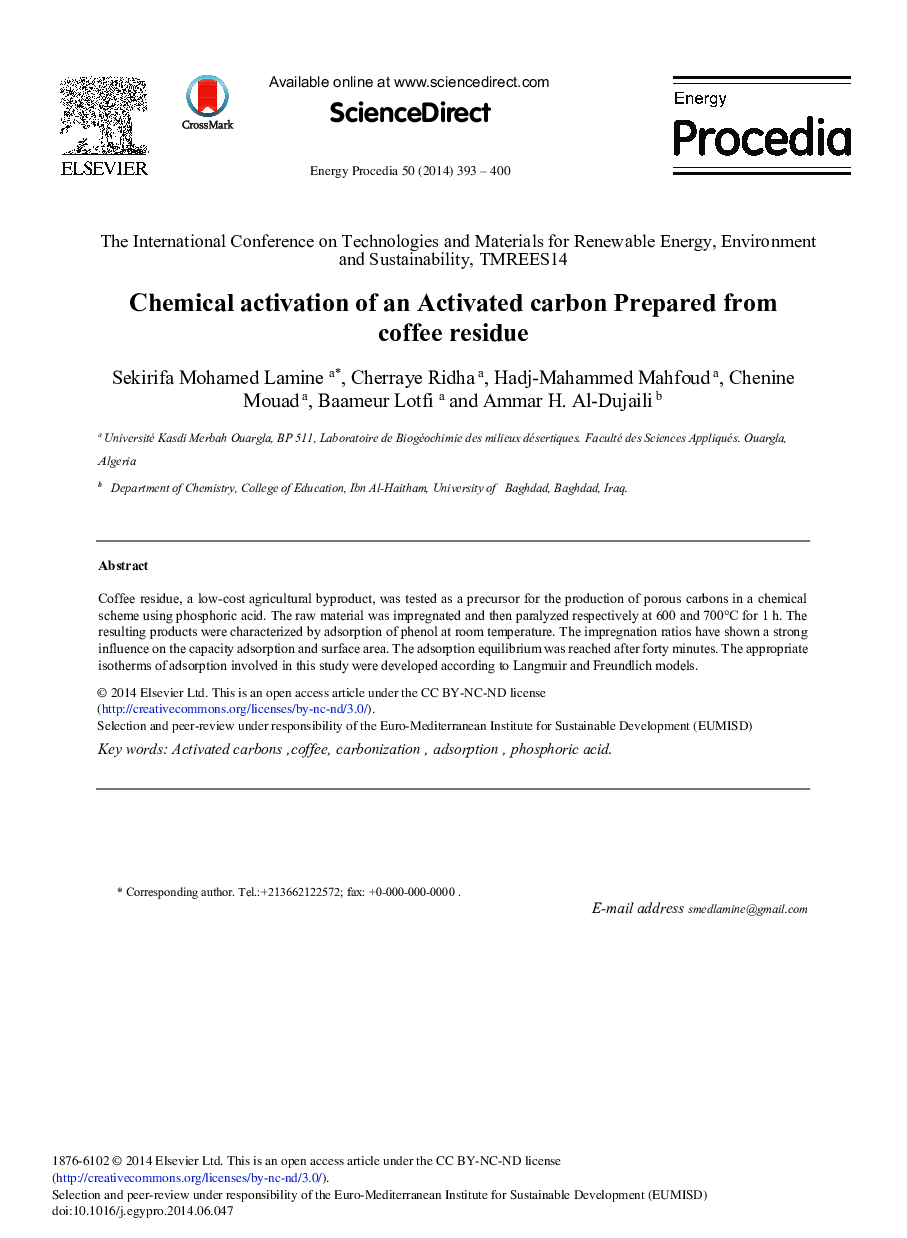| Article ID | Journal | Published Year | Pages | File Type |
|---|---|---|---|---|
| 1511115 | Energy Procedia | 2014 | 8 Pages |
Abstract
Coffee residue, a low-cost agricultural byproduct, was tested as a precursor for the production of porous carbons in a chemical scheme using phosphoric acid. The raw material was impregnated and then paralyzed respectively at 600 and 700 °C for 1 h. The resulting products were characterized by adsorption of phenol at room temperature. The impregnation ratios have shown a strong influence on the capacity adsorption and surface area. The adsorption equilibrium was reached after forty minutes. The appropriate isotherms of adsorption involved in this study were developed according to Langmuir and Freundlich models.
Related Topics
Physical Sciences and Engineering
Energy
Energy (General)
